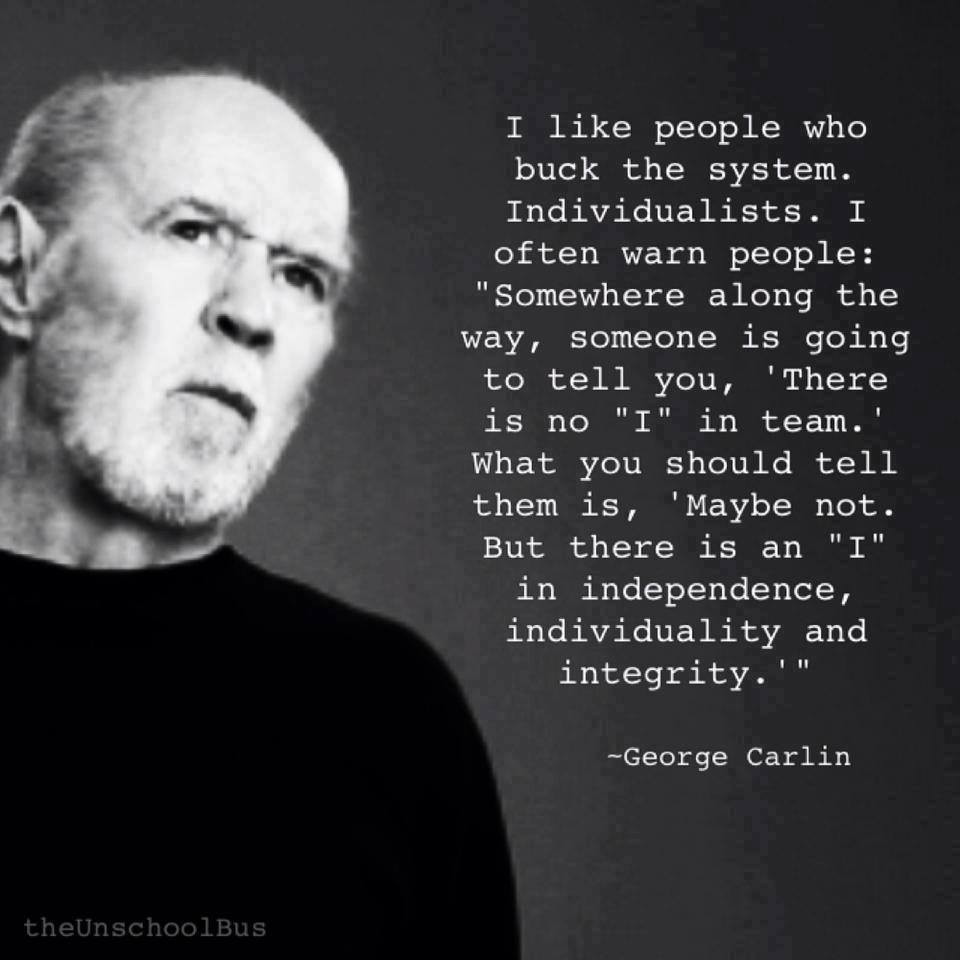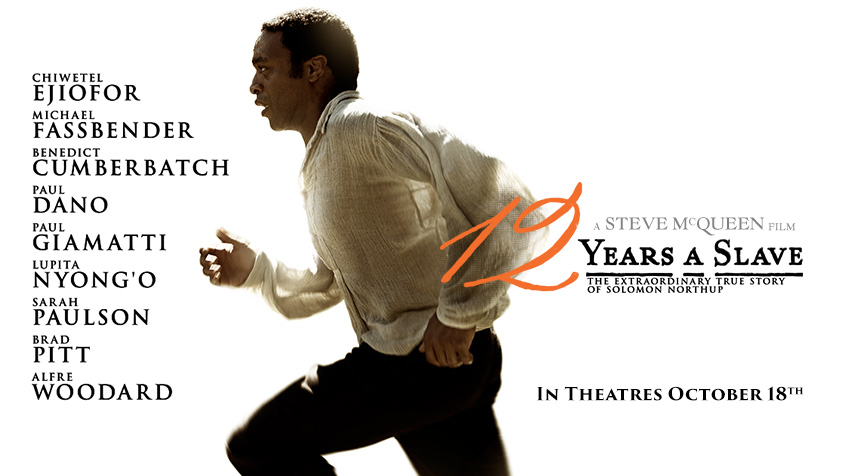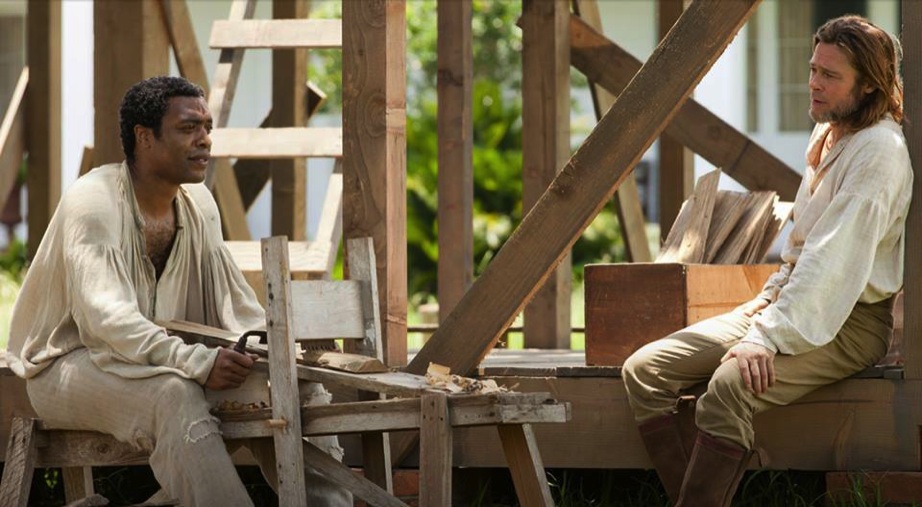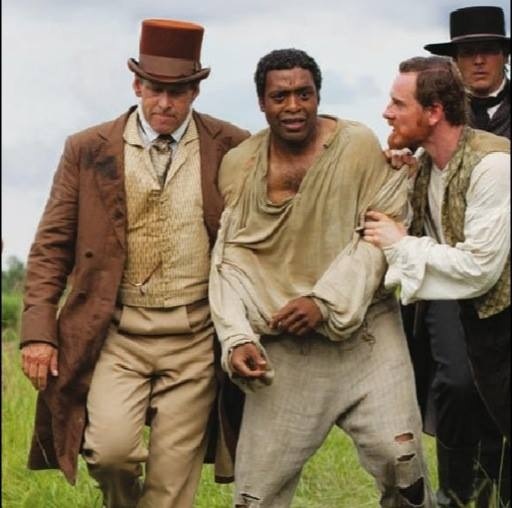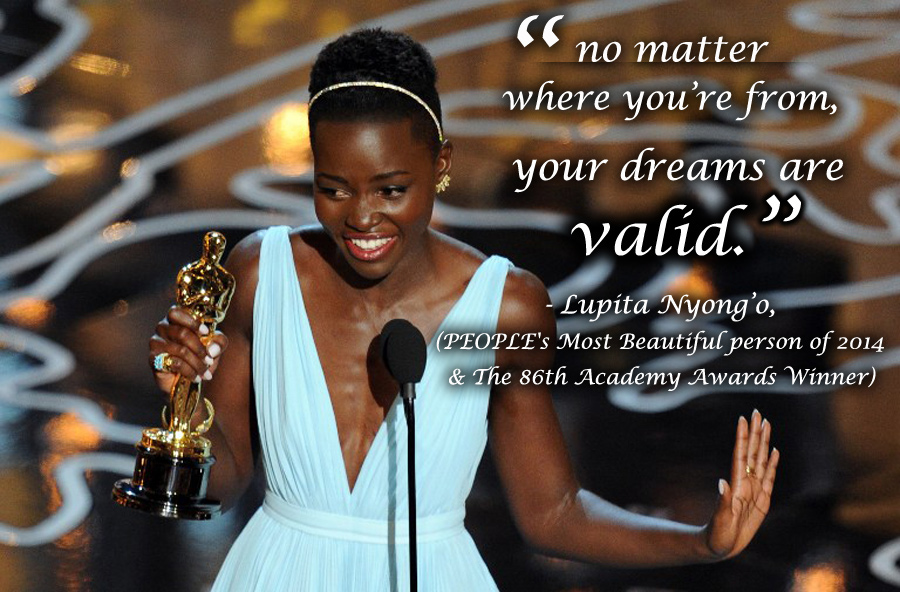“I’m not just a boxer!” Muhammad Ali once said. He wasn’t. He was so much more than that. Apart from his fluid, balletic boxing skills in the ring, he was one of the first sportsmen to use psychology to wear down his opponents before a punch had been thrown. He was fighting some of the toughest, hardest-punching men in the world but he cleverly figured out that they had built up their bodies but neglected their minds. So he used words like weapons, chipping away at his rival’s psyche until they were beaten men and didn’t even know it. That tactic certainly worked with the brutish Sonny Liston in the 60s. Just watch the old black-and-white press conferences as Ali fires one verbal missile after another and world champion Liston can’t believe what he’s hearing from this cocky young pup.
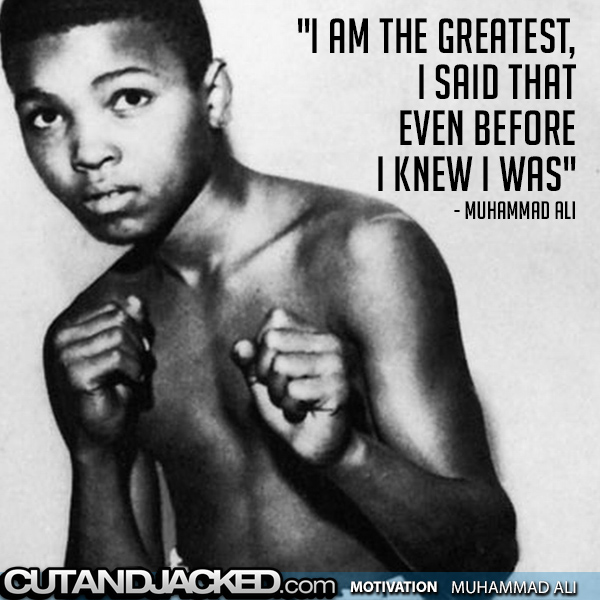
Muhammad Ali was born Cassius Clay. He changed his name for this reason: “Cassius Clay is a slave name. I didn’t choose it and I don’t want it. I am Muhammad Ali, a free name – it means beloved of God – and I insist people use it when people speak to me and of me.” He grew up in a time when black Americans were third-class citizens. He won the Light Heavyweight gold medal at the Rome Olympics in 1960, came back to America, and, when they refused to serve him in a restaurant because of his colour, he went outside and threw his gold medal in the river. Even after becoming Olympic champion for America, no one believed in him. So he believed in himself. He could use words to attack but he could also use words to pump himself up. He called himself The Greatest until he and the world believed it. It gave him the confidence, like a self-fulfilling prophecy, to make his dreams a reality against the tide of begrudgers who wished him ill.
He used words to taunt but he also wrote poems, told jokes and gave speeches to inspire. Some credit Ali with being the first rapper and creating hip-hop music.

In 1974, Ali had perhaps his most famous fight, The Rumble in The Jungle in Zaire, Africa against George Foreman. Nobody gave the ageing Ali a chance. If you watch the Oscar-winning documentary When We Were Kings, you’ll see the extraordinary mental process Ali engaged in to psych himself up for the fight. He begins at the first press conference asking who thinks he can win the fight. Nobody does and he seems down. Then he goes on the attack against his critics. Then he starts working on himself: “Everybody’s scared…there’s nothing to be scared of!” You can see he doesn’t quite believe what he’s saying yet but he keeps going. He turned to his religion for reassurance: “All I need is a prayer because if that prayer reaches the right man, not only will George Foreman fall, mountains will fall!” Ali refused to watch Foreman training, even when they passed each other in the gym. He blocked out his fear. Then Ali tried a different form of psychology on Foreman, a similar brute to Sonny Liston. Ali was 32 then, his speed had left him and he needed a new tactic. He called it rope-a-dope in which he would go to the ropes and absorb punishment before launching a surprise counterattack when the other fighter was exhausted.

When fight night came, Ali started throwing right-hand leads at Foreman. As in any battle, doing the thing your opponent least expects usually ends favourably. A right-hand lead has to travel twice as far across the shoulder to land and it’s hugely disrespectful to any fighter especially the champion of the world to catch him with one let alone twelve as Ali did. Foreman, enraged, punched himself out in the blistering African heat and Ali shocked the world by winning back his world title at the past-it age of 32.
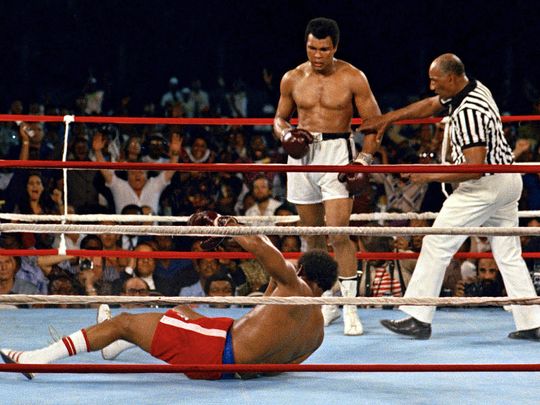
Ali was a political figure too. He became a black Muslim and changed his name, that was a political act. He was involved in the Civil Rights struggle with Malcolm X, that was a political act. And he refused to be drafted into the U.S. Army to go fight in Vietnam, there is no greater political act than that. He said: “Why should they ask me to put on a uniform and go 10,000 miles from home and drop bombs and bullets on brown people while so-called negro people in Louisville are treated like dogs?” Ali was stripped of his titles, boxing licence and was out of the ring for four years in his prime. He didn’t sit around and mope but went on a tour of American colleges to get the young people on his side (and against the war) with his wit, charm and intelligence. Another political act.

Those four years out of boxing cost Ali huge sums of money. Financial pressure and his enormous pride made Ali continue fighting long past his prime. His last, disgraceful fight came three months before his 39th birthday. An ailing, flabby Ali was easily outclassed and hurt by his old sparring partner Larry Holmes. It was an undignified end to an incredible career.
Then began the next great fight of his life when he was diagnosed with Parkinson’s syndrome and the verbose Ali was replaced with a trembling, whispering giant. He still managed to light the Olympic flame at the 1996 games, a highlight for anyone who remembers it. His condition worsened in recent years until he was unable to speak. For the last 30 years, this has been his frail public image. If any good comes from his death, it will be that all his classic clips will get aired again so today’s youth can see what the man was like in his dazzling pomp.
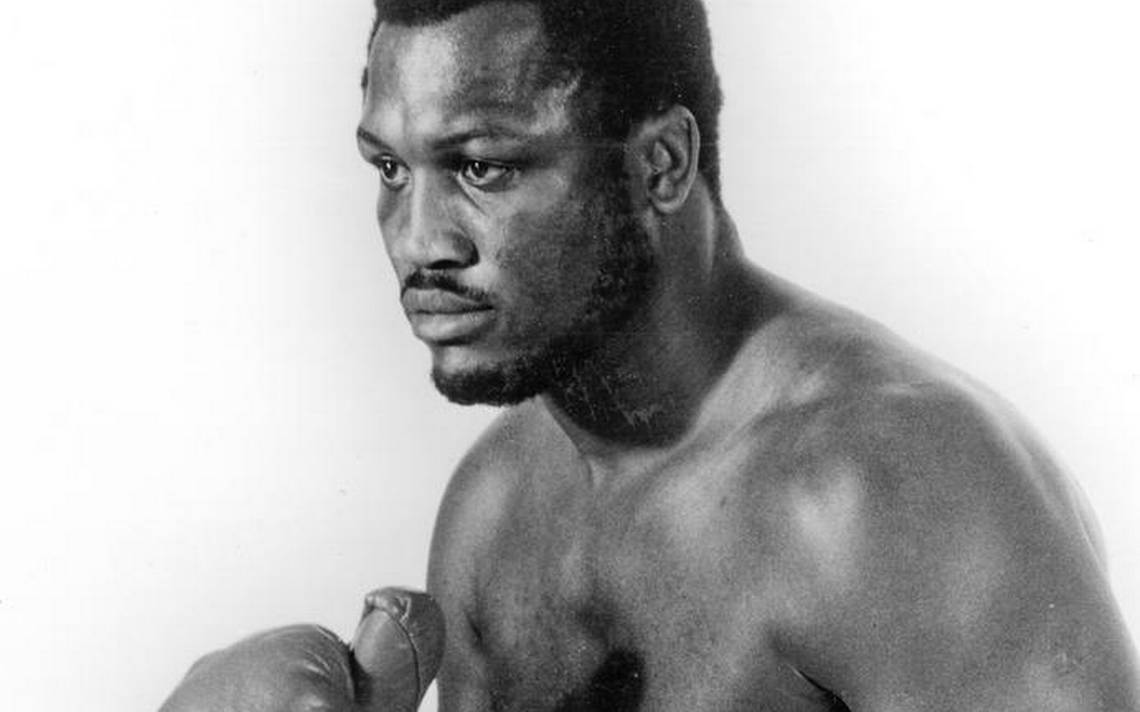
Ali had a dark side too. Fellow boxer Joe Frazier helped Ali out financially when he was banned from the ring. Ali later turned on Frazier, ruined his reputation by calling him an Uncle Tom and a bitter feud developed between them.
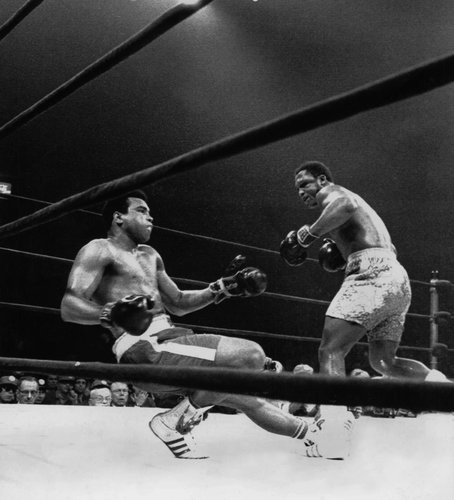
It resulted in Frazier breaking Ali’s jaw and knocking him out in their epic Madison Square Garden encounter in 1971 (that resulted in Ali being out of the ring again for a good while). Despite having a white Irish great-grandfather named Abe Grady who’d married a freed slave out of love (not slave rape as Ali conveniently claimed), Ali said some nasty, racist things about white people including: “The white man is The Devil!” He even compared the white race to poisonous snakes. Pretty distasteful stuff but typical of the hardline rhetoric he was absorbing from radicals around him at the time. In 1972, Ali went to Ireland and received a rapturous reception from a then all-white country. Jose Torres, journalist and former world light-heavyweight champion who accompanied Ali to Dublin, said: “I want to tell you something now: I think that it was his experience in Ireland that reminded him of the goodness of white people and he began easing his attacks on the white man after that. It was when he began to take out of his dictionary the talk about the white devils. How could he think bad of white people when every street he walked down in Ireland, he had all these white people loving him?” In 2009, Muhammad Ali journeyed to Ennis in Ireland (below) where his great-grandfather came from and everything came full circle.
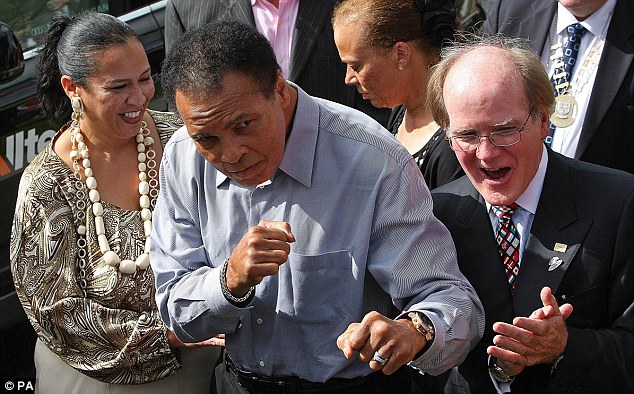
Like Shakespeare’s King Lear, Ali is “a man more sinned against than sinning.” History will be kind to him.
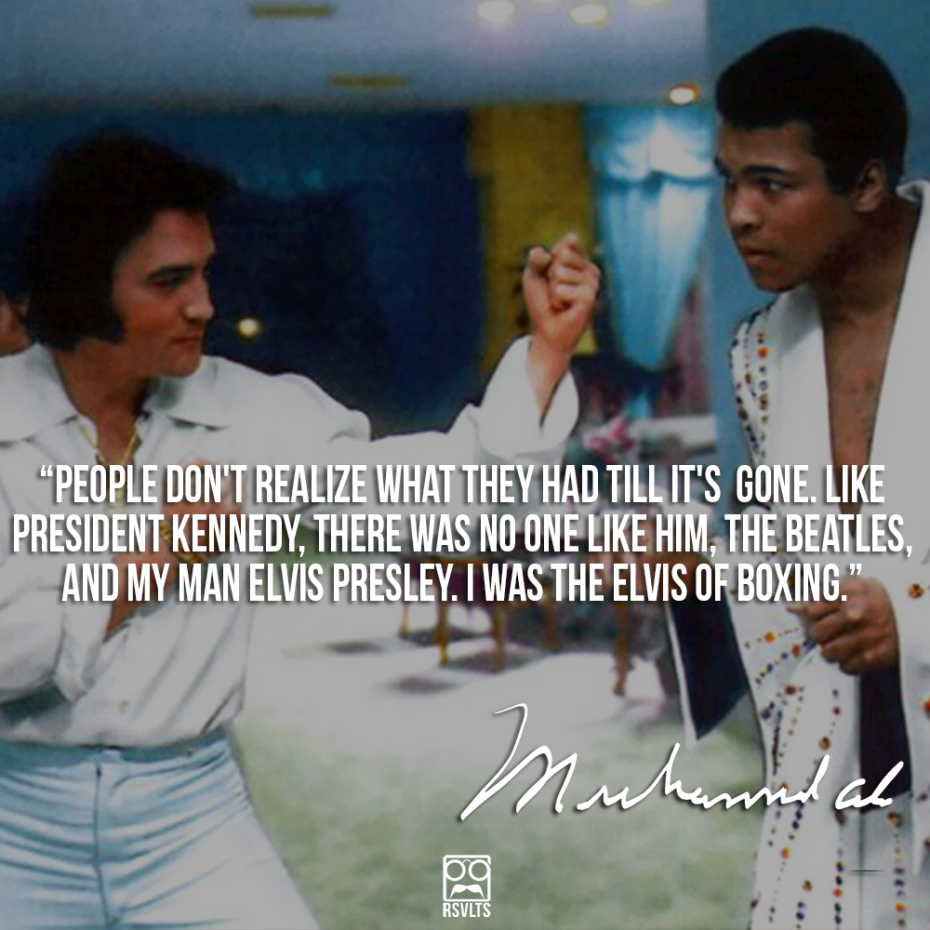
When Elvis Presley died in 1977, the Soviet news agency Tass granted him American icon status along with Mickey Mouse and Coca Cola. Muhammad Ali has more than earned that status too. So long denied recognition, Ali forced the United States to overcome its prejudices and acknowledge him and his people. That is perhaps his greatest victory and a lasting legacy that will inspire people of every race, colour and creed for generations to come. May he rest in peace.

© Stewart Stafford, 2016. All rights reserved.













